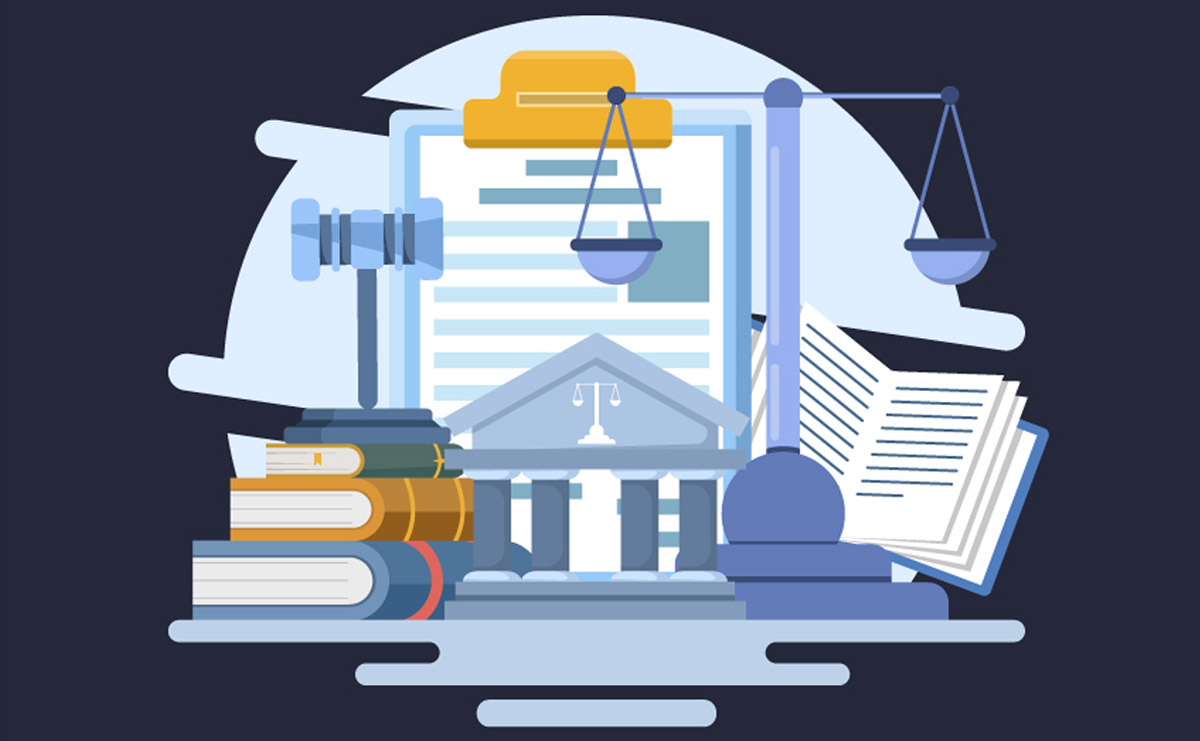Contents
Why Unbundled Legal Services Are Revolutionizing the Legal Profession
Unbundled legal services, or limited-scope representation, give clients a more flexible option compared to traditional legal services. Instead of hiring a lawyer for every part of their case, clients can pick and choose the specific tasks they need help with—whether it is drafting documents, getting legal advice, or having representation in court. This gives clients control over parts of their cases while still benefiting from professional guidance in key areas. With legal fees rising, this approach has become popular for making legal help more affordable and accessible, especially for those who might otherwise handle everything on their own. Hiring an unbundled attorney allows you to receive legal assistance for specific tasks, like drafting documents or offering advice, without committing to full representation for your entire case.
How Unbundling is Streamlining Legal Processes
Unbundling legal services means breaking down legal tasks and offering them to clients flexibly and cost-effectively. Instead of handling an entire case from start to finish, lawyers provide specific services, such as document drafting, legal advice, or court appearances, as needed. This approach is streamlining legal processes in several ways:
Cost Efficiency
Clients can pay for only the required services, making legal assistance more affordable and accessible. This also reduces the financial burden on those who may not need full representation.
Time Management
Lawyers can focus on specific tasks, streamlining their workflow and allowing them to manage their time more efficiently. This can result in faster case resolutions and better resource use.
Client Autonomy
Unbundling empowers clients to handle certain aspects of their cases independently while relying on legal professionals for critical guidance. This promotes greater client involvement in their legal matters.
Access to Justice
By offering a more affordable alternative to full representation, unbundling increases access to legal services for individuals who might otherwise be unable to afford legal help.
Customization
Unbundling allows legal services to be tailored to client’s needs, ensuring they receive focused and effective support in specific areas of their cases.
Increased Efficiency for Firms
For law firms, unbundling is not just a service, it is a strategy that creates an opportunity to optimize operations, handle more clients, and allocate resources more strategically by concentrating on high-value legal work while delegating simpler tasks. This can make firms feel more productive and successful.
In essence, unbundling is helping to make legal services more flexible, accessible, and efficient, creating a more comfortable and reassuring legal process for both clients and lawyers.

How Unbundled Legal Services Break Down Financial Barriers
Unbundled legal services give clients a way to get legal help without paying for the full scope of traditional representation. This is especially helpful for people on tight budgets who need support with certain parts of their case but cannot afford the cost of full legal services. Here is how unbundled legal services make legal help more affordable:
Cost Efficiency: Instead of paying for full representation, clients can hire a lawyer for discrete tasks such as drafting documents, offering legal advice, or representing them in specific hearings. This service reduces the overall cost.
Accessible Expertise: Unbundled services provide access to professional legal advice and support for clients who might otherwise be priced out of the legal system, ensuring more people have the opportunity to resolve their legal issues effectively.
Empowerment and Control: Clients retain control over their cases by handling simpler aspects themselves while seeking legal help for more complex tasks. This hybrid approach allows them to save money by reducing lawyer involvement where it is not strictly necessary.
Flexible Payment Options: Since clients only pay for specific services, they can spread the cost of legal help over time, rather than facing a large upfront retainer fee, making legal help more affordable.
Unbundled legal services are an innovative way to ensure that individuals of all financial backgrounds have access to necessary legal support without being burdened by high costs.
Ethical Considerations in Unbundled Legal Services
Unbundled legal services, while offering flexibility and affordability, also raise important ethical considerations for lawyers. These must be carefully navigated to ensure the client’s rights are protected and the lawyer’s professional responsibilities are met. Vital ethical considerations in unbundled legal services include:
Informed Consent: Lawyers must ensure that clients fully understand the scope and limitations of the unbundled services. Clients should know which tasks the lawyer will handle and which they will manage independently. Clear, written agreements are crucial to avoid misunderstandings.
Competence: Even though lawyers may only provide specific services, they are still responsible for delivering them competently. This means that lawyers must evaluate whether unbundling is appropriate for the client’s case and ensure they have the necessary knowledge and expertise for their tasks.
Communication: Lawyers must maintain clear and ongoing communication with clients about the status and progress of their tasks. Because clients often manage parts of their cases, it is vital to keep them informed of deadlines, potential risks, and next steps.
Avoiding Conflicts of Interest: As in full-service representations, lawyers must avoid conflicts of interest in unbundled legal services. This requires careful screening of new clients and adherence to conflict-checking procedures, especially when the scope of work might intersect with other matters.
Scope of Representation: Clearly defining the scope of representation is essential to avoid liability issues. Lawyers must carefully limit their engagement to specific tasks and ensure clients understand that the lawyer is not responsible for other aspects of the case.
Confidentiality: Lawyers must uphold client confidentiality, even in limited-scope arrangements. Any communication or documentation handled as part of the unbundled services must be treated with the same level of confidentiality as in full representation.
Supervision of Non-Lawyers: If paralegals or other non-lawyers provide unbundled services, lawyers are still responsible for supervising their work and ensuring it complies with ethical and legal standards.
Professional Liability: Although the scope of representation is limited, lawyers remain responsible for the quality of their services. Lawyers must carefully assess the risks involved in limiting representation and take steps to mitigate potential liability issues.
Court Approvals: In some jurisdictions, lawyers providing unbundled services may need to notify the court of their limited representation, particularly when representing clients in court proceedings. This ensures transparency and helps the court understand the scope of the lawyer’s involvement.
Client Expectations: Managing client expectations is crucial to avoid dissatisfaction and potential disputes. Lawyers must ensure that clients understand the risks of handling parts of the case independently and the possible impact on the case’s outcome.
These ethical considerations highlight the importance of careful planning, communication, and transparency when offering unbundled legal services to protect clients and lawyers throughout the legal process.
How Unbundled Legal Services Benefit Solo and Small Law Firms
Unbundled legal services can provide significant advantages for solo and small law firms, helping them grow while maintaining flexibility. Some of the key benefits include:
Increased Client Base: Offering unbundled services allows small firms to attract clients needing help to afford full representation. Solo and small firms can tap into a broader market of clients with varying legal needs by providing affordable, limited-scope services.
Enhanced Revenue Opportunities: Unbundling creates new income streams by offering à la carte services. Lawyers can offer specific legal tasks such as contract reviews, legal consultations, or document drafting, which may not require long-term involvement, allowing the firm to handle more clients.
Better Resource Management: Solo and small firms often have limited time and resources. Unbundling helps lawyers focus on critical legal tasks and delegate or skip tasks that clients can handle on their own, increasing efficiency and reducing administrative burdens.
Flexibility in Service Delivery: Unbundling offers flexibility regarding the services and delivery methods. Services like remote consultations or document review can be delivered more efficiently, allowing lawyers to provide their expertise on a case-by-case basis without committing to a full representation.
Improved Client Satisfaction: Clients appreciate controlling legal costs while receiving professional guidance. By providing only the services that the client needs, firms can offer cost-effective solutions that increase satisfaction and build long-term relationships.
Lower Overhead Costs: Since unbundled services do not require extensive case management or prolonged client engagement, solo and small law firms can reduce overhead costs. This allows them to remain competitive and profitable even when working with budget-conscious clients.
Ability to Specialize: Lawyers in solo or small practices can use unbundled services to develop niche areas of expertise. Focusing on specific tasks within a broader legal area can enhance their reputation and expertise, eventually attracting higher-value clients.
Building Long-Term Relationships: Unbundled services can be an entry point for new clients. Clients who need more comprehensive legal services later are more likely to turn to a firm they already know and trust.
Reduced Workload Stress: Handling a large number of cases can be overwhelming, particularly for solo practitioners. By focusing on specific legal tasks, lawyers can avoid burnout, manage their workload more effectively, and maintain a better work-life balance.
Meeting Market Demand for Affordable Legal Help: Many clients seek more affordable legal services. Unbundling allows solo and small firms to meet this demand while maintaining profitability, positioning them as accessible and client-focused.
Challenges of Implementing Unbundled Legal Services
Offering unbundled legal services—where a lawyer helps with only certain parts of a case instead of handling everything—can make legal help more affordable and accessible. But it is not without its challenges. Lawyers need to manage client expectations, ensure they follow ethical guidelines, and still deliver high-quality services, even when not overseeing the entire case. These challenges can make implementing unbundled services tricky for law firms.
Client Expectations: Clients may need help understanding the limits of unbundled services. They might expect full representation, which can lead to frustration when the scope is limited to specific tasks.
Liability Risks: Clients may misinterpret advice or mishandle tasks they are responsible for, potentially leading to malpractice claims. Clear documentation is essential to mitigate this.
Ethical Concerns: Ethical rules vary across jurisdictions, and lawyers must navigate compliance with these rules while ensuring that clients are adequately informed and not left vulnerable.
Communication and Documentation: Clear communication about the scope of work is essential. Lawyers need to document what is meticulously and is not included to avoid misunderstandings or disputes later on.
Billing and Payment Issues: Clients may need to fully grasp the segmented billing structure of unbundled services, which could lead to confusion or payment disputes.
Quality Control: Ensuring consistent quality of legal services when clients handle parts of their own cases can be challenging. Lawyers must ensure clients can manage the portions they are responsible for.
Client Self-Representation Competence: Many clients may lack the necessary legal knowledge or skills to handle the tasks assigned to them competently, even with legal guidance. This can lead to subpar outcomes or legal setbacks.
Limited Market Demand: While unbundled services are designed to increase access to legal help, many clients may still prefer full representation, making it difficult for law firms to market these services consistently.
Potential Impact on Reputation: If clients fail to handle their portion effectively, it could negatively impact their reputation, even though the lawyer was not entirely responsible for the case.
Adapting Firm Infrastructure: To manage unbundled services effectively, law firms may need to restructure processes, implement new documentation practices, and develop more segmented workflows.
To overcome these challenges, implementing unbundled legal services requires careful planning, clear communication, and client education.
Unbundled Legal Services in Specific Practice Areas
Unbundled legal services, also known as “limited scope representation,” allow clients to hire an attorney for specific tasks rather than full-service representation. This approach can be highly beneficial in several practice areas:
Family Law: Unbundled services are common in divorce, custody, and child support cases. Clients may hire a lawyer just for drafting documents, mediation, or court appearances rather than full representation.
Estate Planning: In drafting wills, trusts, or power of attorney documents, clients often seek unbundled services to save on costs while ensuring compliance with legal standards.
Immigration Law: Clients may request help with specific tasks, such as filing visa applications or preparing for immigration interviews, rather than comprehensive representation throughout the entire immigration process.
Personal Injury: Unbundled services provide a convenient way for clients to get legal assistance. This might include reviewing settlement agreements, advising on negotiation tactics, or helping with the claims process.
Business and Corporate Law: Entrepreneurs might seek legal assistance for specific matters, such as forming a business entity, reviewing contracts, or handling a specific compliance issue.
Real Estate Law: Buyers and sellers might use unbundled services to review purchase agreements, negotiate contract terms, or address title issues.
Streamlining Your Unbundled Legal Services with RunSensible
Technology, particularly platforms like RunSensible, plays a transformative role in streamlining unbundled legal services, enabling solo and small law firms to operate more efficiently while meeting client needs. Here is how RunSensible enhances unbundled legal services:
Automation of Routine Tasks: RunSensible offers document automation tools that allow lawyers to quickly generate contracts, forms, and legal filings. This automation speeds up the delivery of unbundled services, ensuring clients receive fast, accurate results without the manual workload.
Client Portals and Secure Communication: With RunSensible’s secure client portals, lawyers can communicate with clients, share documents, and provide legal updates remotely. This facilitates seamless interaction and ensures confidentiality in unbundled services, where quick information exchanges are critical.
E-Signatures and Digital Contracts: RunSensible integrates e-signature functionality, enabling lawyers to finalize documents and agreements electronically. This accelerates the legal process for unbundled tasks, allowing clients to review and sign contracts without needing physical meetings.
Cloud-Based Case Management: RunSensible’s cloud-based legal management system helps firms organize client data, track case progress, and efficiently manage multiple unbundled cases. Lawyers can access case information anywhere, ensuring continuity and high-quality service, even for limited-scope cases.
Virtual Consultations: RunSensible provides tools for scheduling virtual consultations, allowing lawyers to offer legal advice remotely. This expands the reach of unbundled services, making it easier to serve clients regardless of location without needing in-person interactions.
Integrated Payment Processing: RunSensible simplifies billing and payment by offering integrated payment gateways. Lawyers can easily manage payments for unbundled services, automate invoices, and track client payments, leading to faster transactions and better financial management.
Client Intake and Workflow Automation: Through RunSensible, firms can automate client intake with customizable forms and questionnaires, gathering necessary client information before starting legal work. This automation reduces the administrative burden and ensures client details are accurately collected and stored.
Workflow Customization: Lawyers can use RunSensible to customize workflows specific to unbundled services, streamlining the process for handling individual tasks, such as legal research or document review, while maintaining clear task assignments and deadlines.
AI-Enhanced Case Management: RunSensible integrates with AI tools that assist in managing case workflows, automating repetitive tasks, and providing insights into client interactions. This AI integration helps lawyers focus on higher-value legal work, increasing efficiency in handling unbundled services.
Data Analytics for Service Optimization: RunSensibleoffers analytics tools that track client interactions, case progress, and financial performance. Firms can use this data to improve how unbundled services are delivered, ensuring that the process remains cost-effective and client-centered.
By utilizing RunSensible, solo and small law firms can streamline their operations, reduce administrative burdens, and deliver unbundled legal services more efficiently, improving client satisfaction and increasing profitability.
Final Thoughts
In today’s fast-paced legal world, unbundled legal services are a game-changer. Instead of handling every part of a case, lawyers offer specific help—like document drafting or court representation—giving clients more control over their legal matters. This approach not only makes legal help more affordable but also makes it more accessible to a wider range of people who might otherwise struggle to afford full representation.
For solo and small law firms, offering unbundled services opens up new opportunities. It allows them to reach more clients, better manage their workload, and offer more tailored services. But, to do it right, lawyers need to be clear with clients about what is included, stay on top of ethical guidelines, and ensure they are providing high-quality work in the areas they take on. Working with an unbundled attorney is a cost-effective way to get professional legal guidance for key parts of your case, without the expense of full-service representation throughout the entire process.
With tools like RunSensible, the process becomes even easier. From managing client communication to automating tasks, legal technology helps firms offer unbundled services efficiently and with less hassle. It is a win-win: clients get the help they need without the full price tag, and law firms can serve more people while keeping their operations smooth and profitable.
Disclaimer: The content provided on this blog is for informational purposes only and does not constitute legal, financial, or professional advice.







